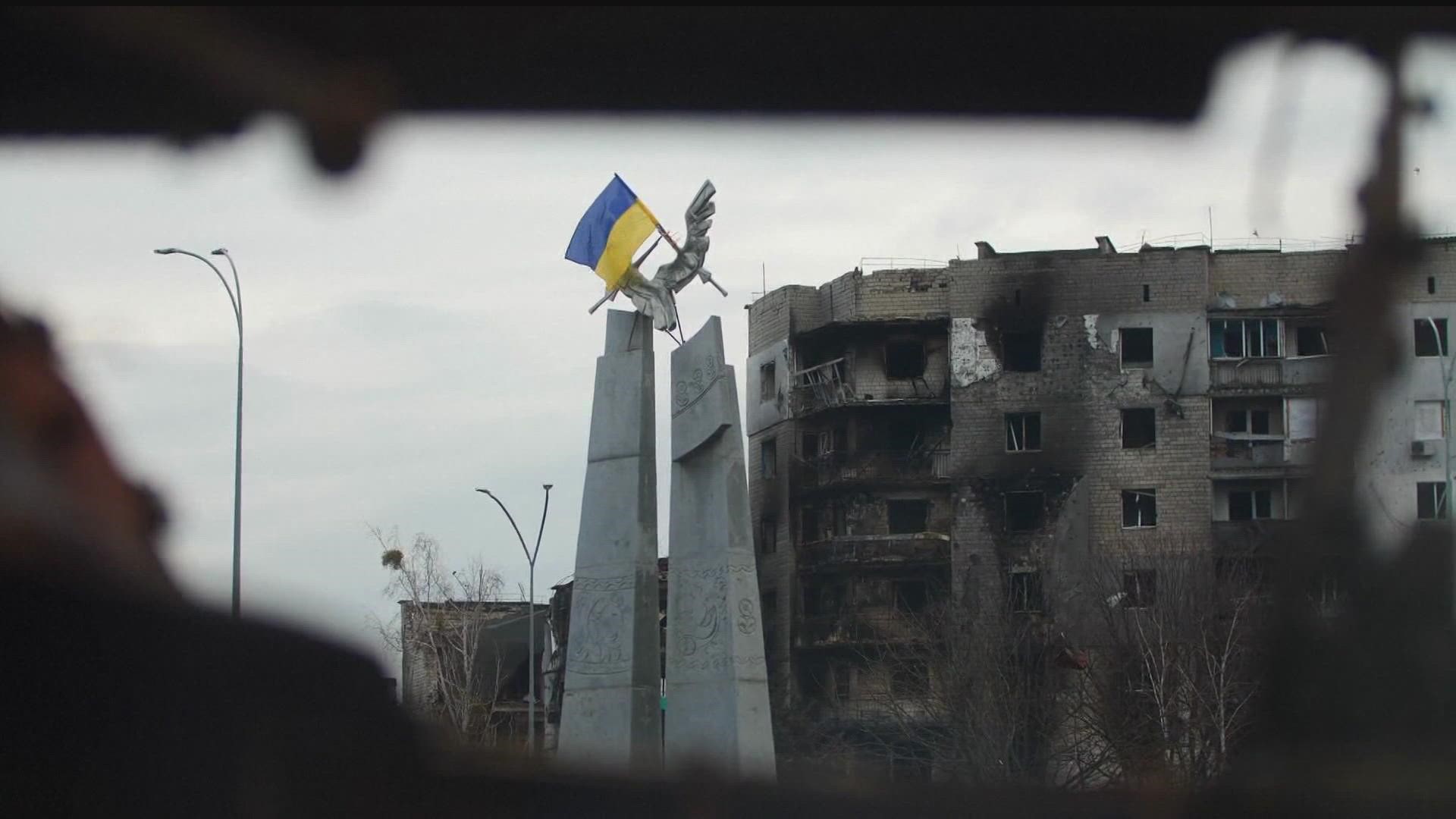MINNEAPOLIS — One year after Russia's full-scale invasion of Ukraine, the future of the most serious European conflict since World War II appears increasingly uncertain.
Tens of thousands have already died, millions have been forced to leave their homes, and there seems to be no end in sight.
On Friday, the U.S. pledged another $2 billion in assistance to Ukraine and announced more sanctions on Russian supporters and companies. At the same time, China published an official position paper calling for peace, while stopping short of condemning the invasion or demanding Russia's withdrawal from Ukrainian territory.
Speaking before the United Nations Security Council to mark the year anniversary since the invasion, Secretary of State Antony Blinken said Friday that the U.S. remains "prepared to engage in any meaningful diplomatic effort to stop Russia's aggression against Ukraine," but that "it's the nature of peace that matters."
"Any peace that legitimizes Russia's seizure of land by force will weaken the charter and send a message to would-be aggressors everywhere," Blinken said, "that they can invade countries and get away with it."
As it stands now, Russia controls only portions of eastern and southern Ukraine, having faced stiff resistance from Ukrainian forces.
"I think everybody was surprised, perhaps nobody more than the Russians, at how poorly they performed on the battlefield," said Andrew Latham, a professor of political science at Macalester College. "What's not so much of a surprise is where we are today. A frozen conflict, a deadlock, a mutually hurting deadlock. That is not terribly surprising. And I'm not sure what the way forward is for either side at this point."
Although the United States has offered tens of billions of dollars in aid to Ukraine so far, the Biden administration has resisted some of Ukraine's requests for heavier equipment such as fighter jets. According to the Pew Research Center, about a quarter of Americans said in January 2023 that the U.S. was giving too much aid to Ukraine. A total of 31 percent considered the aid levels "about right," and 20 percent said the U.S. needed to boost assistance. Self-identifying Democrats were more likely to support maintaining or increasing aid as opposed to Republicans.
Republican lawmakers have also become split on the issue of aid to Ukraine. Top congressional leaders, including Sen. Mitch McConnell of Kentucky, have criticized the Biden administration for not providing enough assistance, whereas another faction has called for an end to military aid.
"The Biden administration has struck a morally absolutist pose but when it comes to actual support for Ukraine, it really has had more of a balanced approach. On one hand, providing what it thinks Ukraine needs in order to stave off or stymie a Russian victory, but on the other hand not providing too much that it would provoke the Russians," Latham said. "To its credit, the Biden administration has struck that balance and I think it's likely to continue with it."
On Friday, just days after returning from a trip to Ukraine and Poland, President Biden addressed the role of China in an interview with ABC News. Although some members of his administration have expressed alarm in recent weeks about China potentially providing aid -- even lethal aid -- to Russia, Biden said "I don't anticipate a major initiative on the part of China providing weaponry to Russia." However, if China were to provide such assistance, the president said the United States "would respond."
Watch more on the war in Ukraine:
Watch all of the latest stories from Russia's war on Ukraine in our YouTube playlist:

